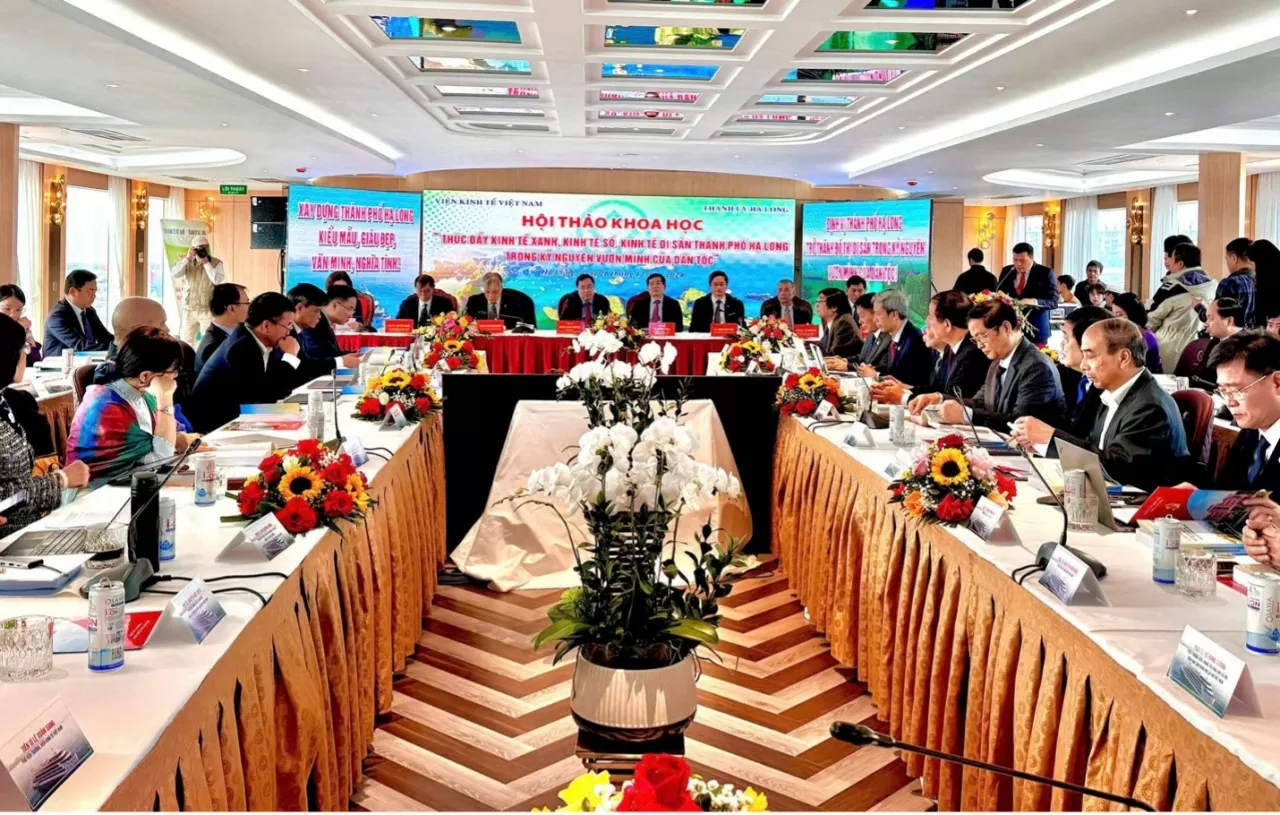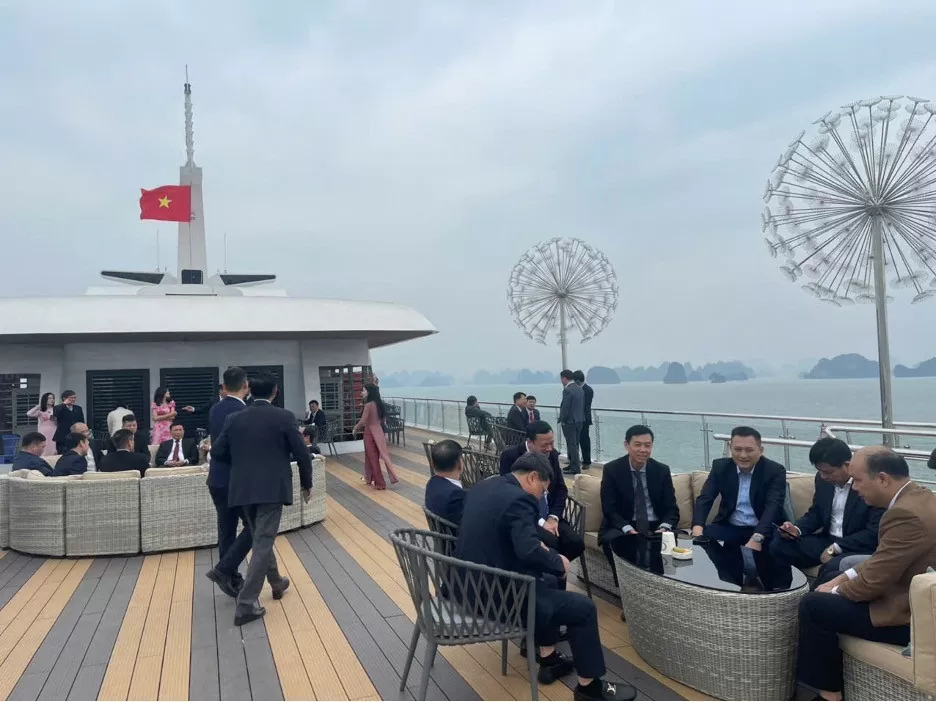
Ha Long: Forging a learning city for sustainable development
Latest
 |
| Nearly 400 delegates gather at the workshop on December 26. |
People-centered, culture-driven development
On December 26, Ha Long City, in partnership with the Institute of Economics under the Vietnam Academy of Social Sciences, hosted a landmark scientific workshop themed: “Advancing green economy, digital economy, and heritage economy in Ha Long City’s era of national growth”. The event drew nearly 400 participants, including local government leaders, leading experts, and scientists specializing in economics, culture, environmental studies, and technology.
Addressing the workshop, Secretary of Hạ Long’s Party Committee Vu Quyet Tien underscored: “Transitioning to a green economy, digital economy, and heritage economy is both an inevitable trend and a key objective for achieving economic prosperity, environmental sustainability, and social equity”.
Held aboard a five-star cruise on Ha Long Bay, the workshop offered delegates a unique opportunity to reflect on their discussions while taking in the stunning vistas of this globally renowned heritage site.
The workshop emphasized a central message: “People as the focus and culture as the foundation”. Culture, seen not only as a spiritual resource but also as a catalyst for pride, patriotism, and a collective aspiration for progress, plays a pivotal role in community-driven development.
Ha Long has already implemented a range of initiatives to preserve and amplify local cultural heritage. These include fostering the heritage economy through traditional festivals, preserving craft villages, and establishing green tourism ecosystems. These efforts not only instill national pride but also create opportunities for lifelong learning and skill development, steering the city toward becoming a comprehensive learning society.
 |
| Held aboard a five-star cruise on Ha Long Bay, the workshop offered delegates a unique opportunity to reflect on their discussions while taking in the stunning vistas of this globally renowned heritage site. |
Aligning with UNESCO’s global vision
UNESCO recognizes learning cities as vital players in tackling global challenges such as climate change, environmental degradation, and social inequality. The Jubail Commitment - the key declaration from the 6th international conference on Learning Cities held from 2-5 December - highlighted the crucial role of learning cities in driving sustainable economic models and mitigating environmental impact.
Director of the UNESCO Institute for Lifelong Learning Isabell Kempf emphasized during the conference: “Cities are home to more than half of the world’s population and must be at the forefront of societal change. The 2024 UNESCO Learning City awardees demonstrate the power of lifelong learning to enable citizens to adapt, innovate and collaborate on solutions to our planet's most pressing challenges. Their commitment to inclusivity and to sustainable development offers a path to a more just and prosperous future for all”.
Ha Long has swiftly aligned its development strategies with these global priorities. The city has positioned the green economy as the cornerstone of its sustainable growth agenda. Programs focusing on education and training in green technologies, waste management, and renewable energy utilization have been widely rolled out, fostering environmental awareness while equipping residents with essential skills for emerging industries.
In addition, Ha Long’s push for a circular economy - emphasizing resource recycling and reuse - stands out as a key initiative aligned with UNESCO’s sustainability principles for learning cities.
Harnessing its status as a UNESCO-recognized heritage site, Ha Long Bay serves as both a cultural symbol and a dynamic “living classroom” for sustainability education. The city has launched heritage-based learning programs to deepen community understanding of its cultural and ecological assets. Projects such as the preservation of traditional craft villages, the development of eco-tourism, and the organization of cultural events have not only strengthened community ties but also provided stable, long-term income opportunities.
A global learning city in the making
As it prepares to join UNESCO’s global Network of Learning Cities, Ha Long is simultaneously addressing local challenges and contributing to global priorities, including environmental preservation, sustainable development, and improving the quality of life for its residents.
By integrating lifelong learning into its economic development strategies, Ha Long is shaping a highly impactful and scalable model of sustainable development. This journey brings tangible benefits to local communities while representing a meaningful contribution to a greener, more equitable future for humanity.













